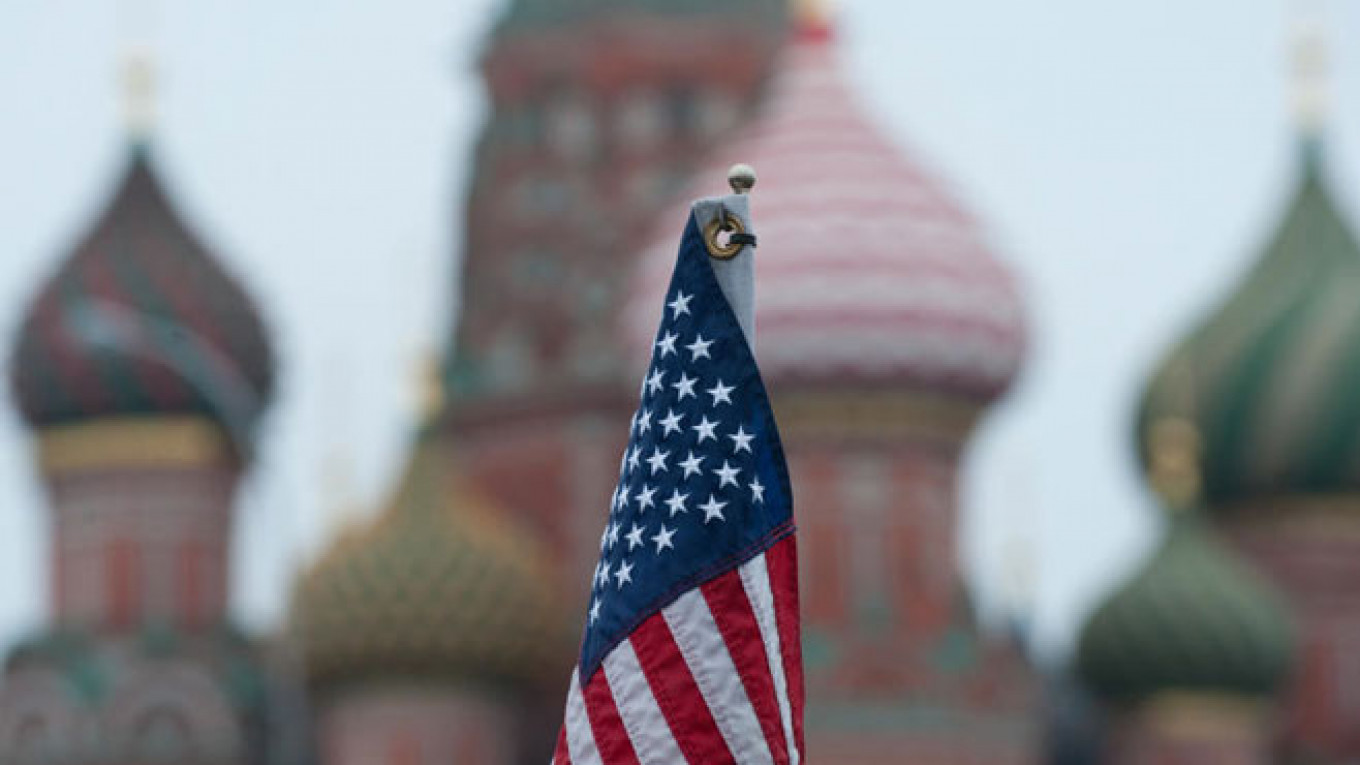The Levada Center, an independent Moscow-based pollster, has tracked Russian attitudes toward the United States since the early 1990s, with the occasional gap in the first few years. There have been four bursts of antipathy toward the United States during this period: 1998, 2003, 2008 and 2014-15. Predictably, each of these episodes correlated with the two countries' disagreements over conflicts in Kosovo, Iraq, Georgia and Ukraine.
Each time, anti-American sentiment grew radically in the course of one or two months, and each time (with the exception of the latest crisis) relations between the two countries normalized just as quickly.
While it's hard to believe today, in the early 1990s a majority of Russians viewed the United States not only as the sole remaining superpower, but as an unequivocal role model and their main point of reference in foreign policy. When asked which Western nation Russia should make a top priority for good relations, an overwhelming 74 percent opted for the United States.
However, by the end of 1993 Russia's priorities had changed and only 35 percent of people said they looked toward the United States. The deepening economic crisis made it clear that for Russia, the level of development seen in the United States was out of reach for the foreseeable future. The Russian public had sour grapes about an American standard of living that they could not hope to achieve.
The U.S. bombing of Iraq in 1993 was the first major challenge to pro-American sentiment. Public opinion was split: A third of survey respondents were in favor of U.S. actions, but half were opposed.
Nevertheless, in 1995-96 most Russians interpreted U.S. actions toward their country as benevolent. Only 7 percent viewed the United States as an enemy. By that time Washington was no longer an "ally," but it still came in sixth on the list of "enemies" listed by those polled — after the mafia, corrupt bureaucrats, Chechens and others. Today the United States is number one on that list.
The events of 1998-99 were critical for Russian attitudes toward the United States. This period marked a series of events that strained bilateral relations: the U.S. military operation in Iraq, the NATO intervention in Yugoslavia, the start of the Second Chechen War and the West's subsequent criticism of Russia, the U.S. withdrawal from the ABM Treaty, and the first eastward expansion of NATO since the collapse of the Soviet Union.
By the time Vladimir Putin became president, the perception of the United States in Russia was already close to what it is now, even without the aid of the daily television propaganda that we attribute it to. One more development that the Russian government responded to in 1999 was Western criticism of Russia's actions in Chechnya. The Kremlin revived the propaganda technique of blaming the West for Russia's misfortunes.
The final rift in relations can be pegged to 2003-04, a period that corresponds with the invasion of Iraq, a series of "color revolutions" that the Russian elite interpreted as a conspiracy against Russia, and a second phase of eastward NATO expansion.
Several factors have contributed to today's record anti-Americanism. Above all, ever since demonstrations in favor of EU integration began in Ukraine in November 2013, Russian television channels have been perfecting a propaganda model that implies the protests are part of a U.S. conspiracy against Russia.
The Russian government noticed in the late 1990s that challenging the United States had a positive effect on approval ratings, so by the mid-2000s the Kremlin made anti-Americanism a key component of its propaganda campaign. In recent years, the standoff with the United States has been one of the main tools in the Russian authorities' efforts to maintain their own legitimacy in economic crisis.
Denis Volkov is a sociologist at the Levada Center. This is an abridged version of a comment that appeared on Carnegie Moscow's Eurasia Outlook blog.
A Message from The Moscow Times:
Dear readers,
We are facing unprecedented challenges. Russia's Prosecutor General's Office has designated The Moscow Times as an "undesirable" organization, criminalizing our work and putting our staff at risk of prosecution. This follows our earlier unjust labeling as a "foreign agent."
These actions are direct attempts to silence independent journalism in Russia. The authorities claim our work "discredits the decisions of the Russian leadership." We see things differently: we strive to provide accurate, unbiased reporting on Russia.
We, the journalists of The Moscow Times, refuse to be silenced. But to continue our work, we need your help.
Your support, no matter how small, makes a world of difference. If you can, please support us monthly starting from just $2. It's quick to set up, and every contribution makes a significant impact.
By supporting The Moscow Times, you're defending open, independent journalism in the face of repression. Thank you for standing with us.
Remind me later.








